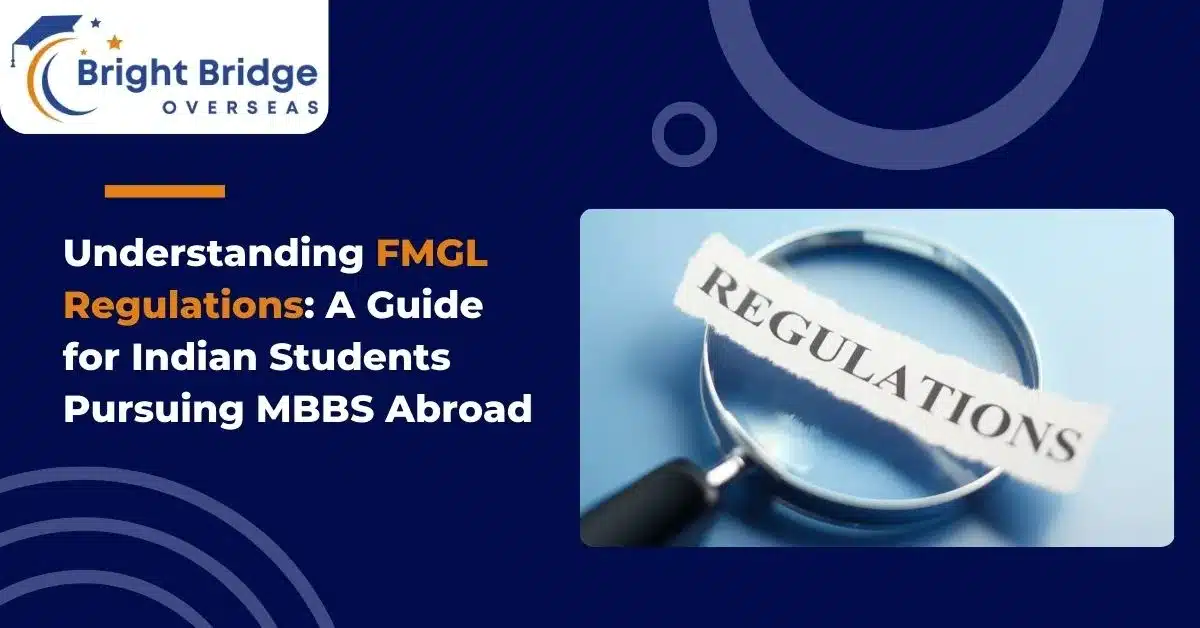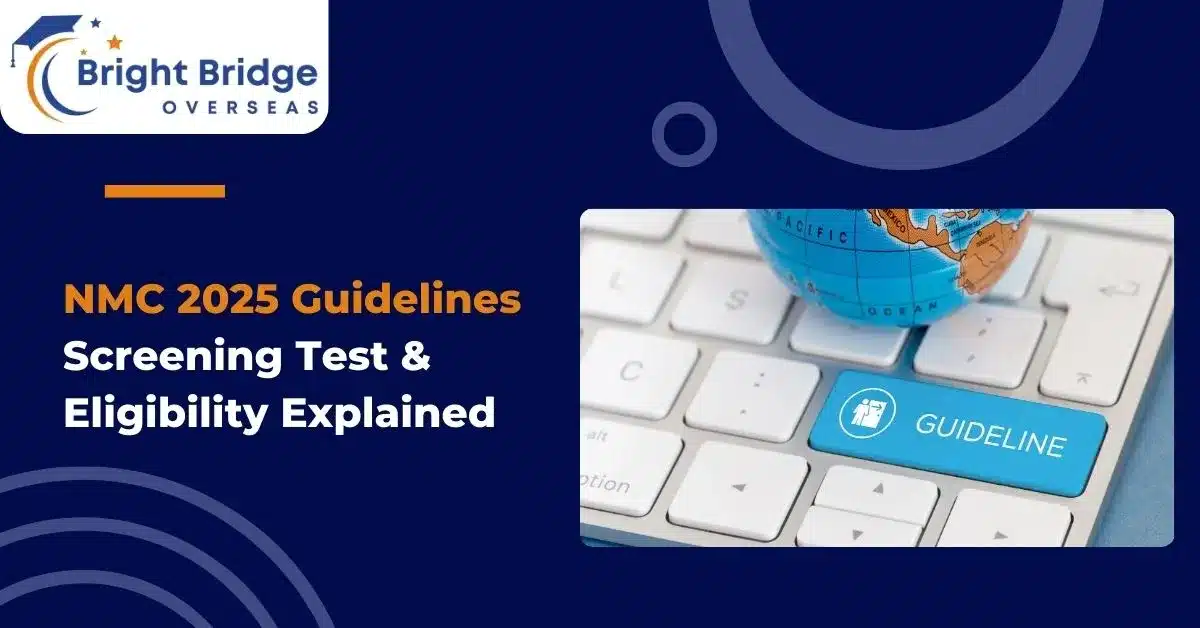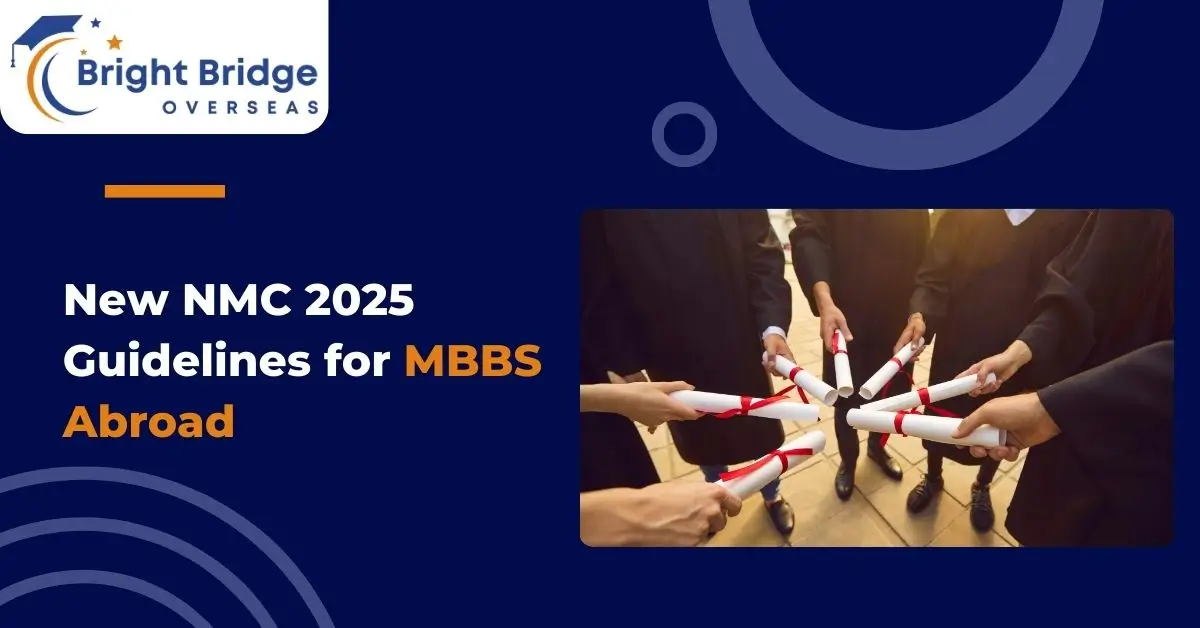The National Medical Commission (NMC) has outlined stringent guidelines for Indian citizens and Overseas Citizens…

Every year, thousands of Indian students dream of becoming doctors and seek medical education abroad. However, ensuring the validity of their qualifications for practicing in India is crucial. The National Medical Commission (NMC) has established the Foreign Medical Graduate Licentiates (FMGL) Regulations, 2021, which set the guidelines for studying medicine abroad. This blog provides an in-depth look at these regulations to help students make informed decisions.
Why FMGL Regulations Are Important?
The FMGL Regulations are designed to ensure that Indian students pursuing medical education abroad receive a quality education comparable to Indian medical standards. Complying with these guidelines is essential for registration as a medical practitioner in India.
Key Aspects of FMGL Regulations
1. Course Duration
- The undergraduate medical course must span at least 4.5 years (54 months), followed by a 1-year supervised internship.
- The entire program, including clinical training and internships, must be completed within a maximum of 10 years.
2. Medium of Instruction
- The language of instruction must be English. Non-compliance with this requirement can disqualify students from practicing in India.
3. Curriculum and Syllabus
- The curriculum must include all core subjects like anatomy, physiology, pathology, pharmacology, and practical clinical training.
- Institutions must align their syllabus with NMC standards.
4. Clinical Training
- Adequate clinical exposure is mandatory, including supervised internships in healthcare settings.
- A 12-month internship in India is required for final registration.
5. Exit Exam Requirement
- Students must pass the National Exit Test (NEXT) to qualify for permanent registration in India.
Ready to take the first step towards your MBBS journey? Contact us today and let us help you achieve your dream!
Responsibilities of Students
Students bear the responsibility of verifying whether the foreign medical institutions they plan to enrol in meet NMC standards. Failure to confirm compliance could lead to disqualification from medical registration in India.
Accreditation of Foreign Medical Institutions
To avoid complications, students should:
- Check the institution’s recognition in the World Directory of Medical Schools (WDMS).
- Ensure the institution is recognized by the medical council of the respective country.
- Refer to the NMC’s list of approved institutions.
Common Pitfalls and How to Avoid Them
1. Enrolling in Non-Compliant Institutions
- Always verify an institution’s compliance with FMGL guidelines before admission.
2. Lack of Awareness About Clinical Training Standards
- Confirm the adequacy of clinical exposure and internships offered.
3. Ignoring the Language of Instruction
- Ensure the medium of instruction is English to avoid eligibility issues later.
Why FMGL Compliance Matters
By adhering to these regulations, students not only safeguard their career aspirations but also align with the global standards of medical practice. The regulations ensure that students are competent, well-trained, and eligible to serve as healthcare professionals in India.
Conclusion
Indian students planning to study MBBS abroad must prioritize institutions that meet the FMGL Regulations, 2021. Proper research and compliance with these guidelines can help students achieve their dream of becoming successful medical practitioners.
For assistance in choosing the right institution and ensuring compliance with NMC guidelines, consult a trusted MBBS in Georgia Consultancy like Bright Bridge Overseas, which specializes in guiding students toward reputable universities abroad.
Reference From: Times of India

